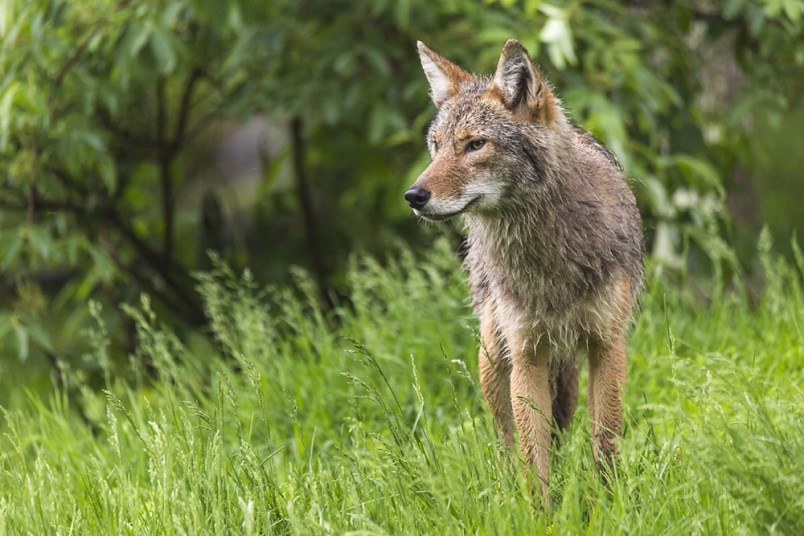Last weekend the B.C. Conservation Officer Service received the fourth report of a coyote attack in Stanley Park in three months.
In a , the service reported a man was bitten on the leg by the Totem Poles, near the Brockton Oval, shortly after 11 p.m. on Saturday (June 5). Conservation officers immediately responded and patrolled the area but no coyote was found.
In May by a coyote while running on the Stanley Park seawall and a month before that a was injured when he collided with a coyote. Also in April, another while walking on the seawall.
The continues to receive reports of aggressive coyote behaviour in
— BC CO Service (@_BCCOS)
We strongly encourage everyone who goes to Stanley Park to take precautions in case you encounter an aggressive coyote.
More info here:
“We strongly encourage everyone who goes to Stanley Park to take precautions in case you encounter an aggressive coyote,” the service wrote in the Facebook post. “The public is asked to familiarize themselves with safety tips, which include making yourself look as large as possible; waving your arms or throwing objects, such as rocks, and shouting at the coyote.”
Other tips for dealing with coyotes on the include:
- Keep dogs on leash and under control at all times
- Create and maintain space. Give wildlife lots of room to avoid you, never crowd around them.
- Do not stop to take pictures.
- Never feed wildlife. Avoid food-conditioning wolves or coyotes by securing all food and garbage.
- Prevent conflicts. Give all wild animals distance, not food. Avoid hiking alone. Keep children close.
- Be predator aware. Understand and watch for wildlife warning signs.
- Be informed and inform others of current information.
- Be prepared for an encounter. Carry deterrents such as noise makers, sticks, or bear spray, and know how to use them.
- Respect all wildlife and their right to be here.
Generally not a threat to humans, coyotes are naturally curious animals, however, they are timid and will usually run away if challenged. Coyotes start posing a risk to people when they lose their wariness and become comfortable around humans - this is usually a result of direct or indirect feeding by humans.




